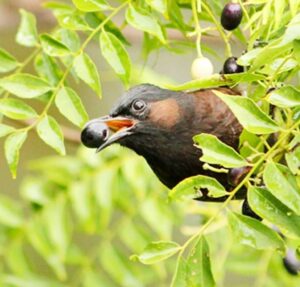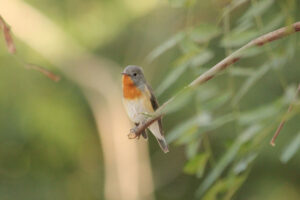Do’s and don’ts of birdwatching includes the code of conduct of birdwatching that promotes the conservation of bird and its habitat and pointers that enhances the success rate of the birdwatching trip as a whole.
Getting ready
- Research about the area you plan to visit – road access, locality, availability of food nearby, opening and closing timings if it’s a protected area, etc.
- If you are interested in a particular bird, research about the habited and the best time of the day and the best season of the year when you have an increased chance of spotting that bird.
- Carry appropriate birding equipment and accessories to make the trip a success.
- Wear appropriate dress (in accordance with the habitat you are visiting). Do not wear whites and bright colored clothes.
Read: The basic equipment needs for birdwatching.
On the field
- Do not enter any private property without permission.
- In case you are in a protected area Follow the rules and regulations of the area.
- Follow designated paths and trails (if any) to minimise impacting the natural habitat.
- If you are birding in an area where people coexist with nature, respect the rights and culture of the people living there.
- Do not disturb roosting or nesting birds.
- Do not handle young birds or eggs.
- Maintain distance with the birds. Do not go close enough to disturb them. Use binoculars or take photographs using telephoto lens.
- Do not feed the birds as bait for taking photography or otherwise. This might disrupt their natural diet and create human dependency.
- Do not use ‘playback calls’ to attract birds. This can cause distress to them.
- If you are not camouflaged enough like professional photographers, and you spot a bird, after you took few photos for records you should immediately leave the place without disturbing the bird.
- Do not make noise while birding.
- Do not litter.
While leaving the field
- Check all your equipment and gears are in place.
- Do not leave behind food, plastic bags or anything else.
- do not take any plants or animals from a protected area.
‘Birding’ is a respectful activity to promote conservation of nature and protection of wildlife. Maintain its dignity. Protect bird habitats by following proper birding ethics.




